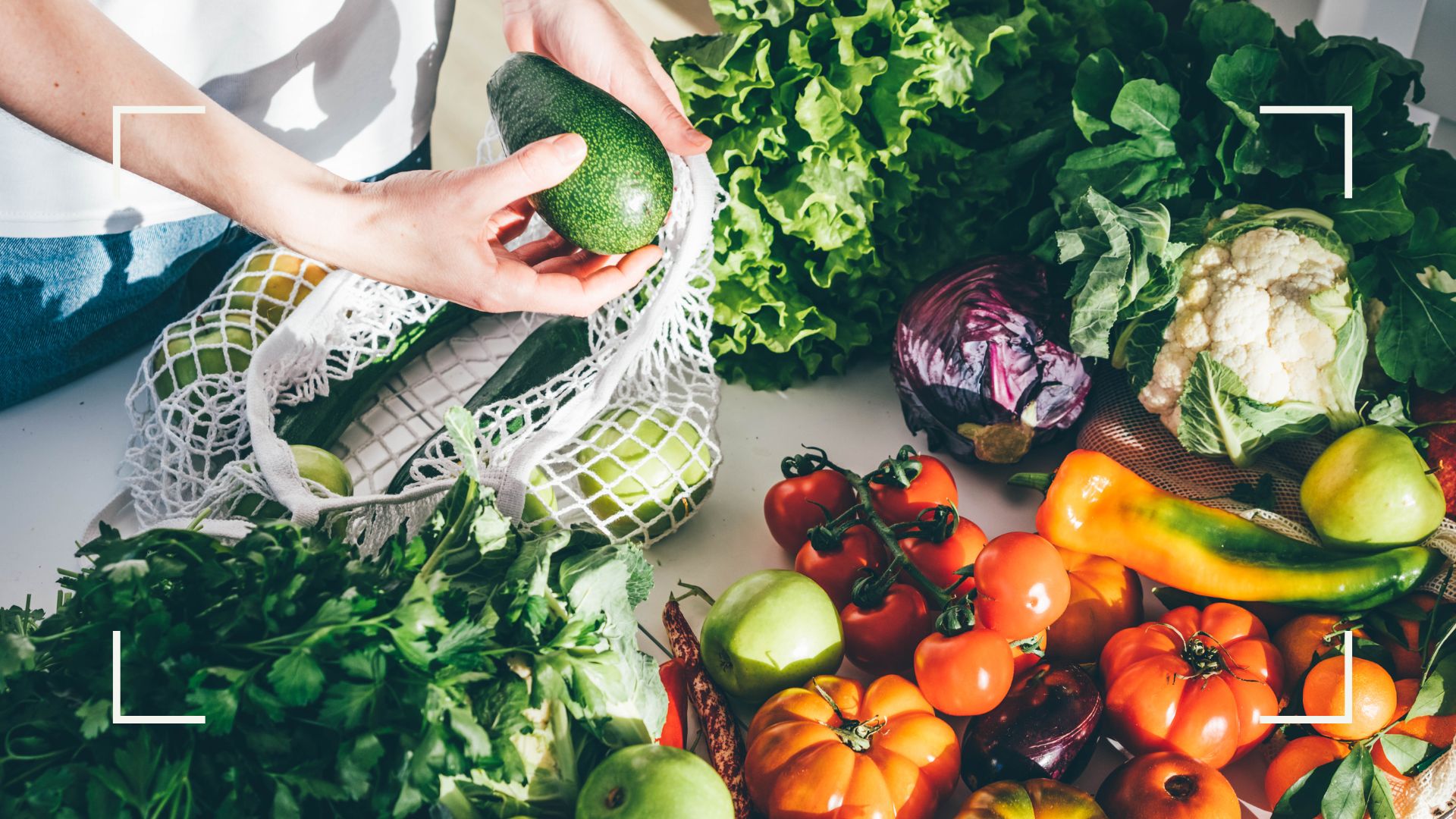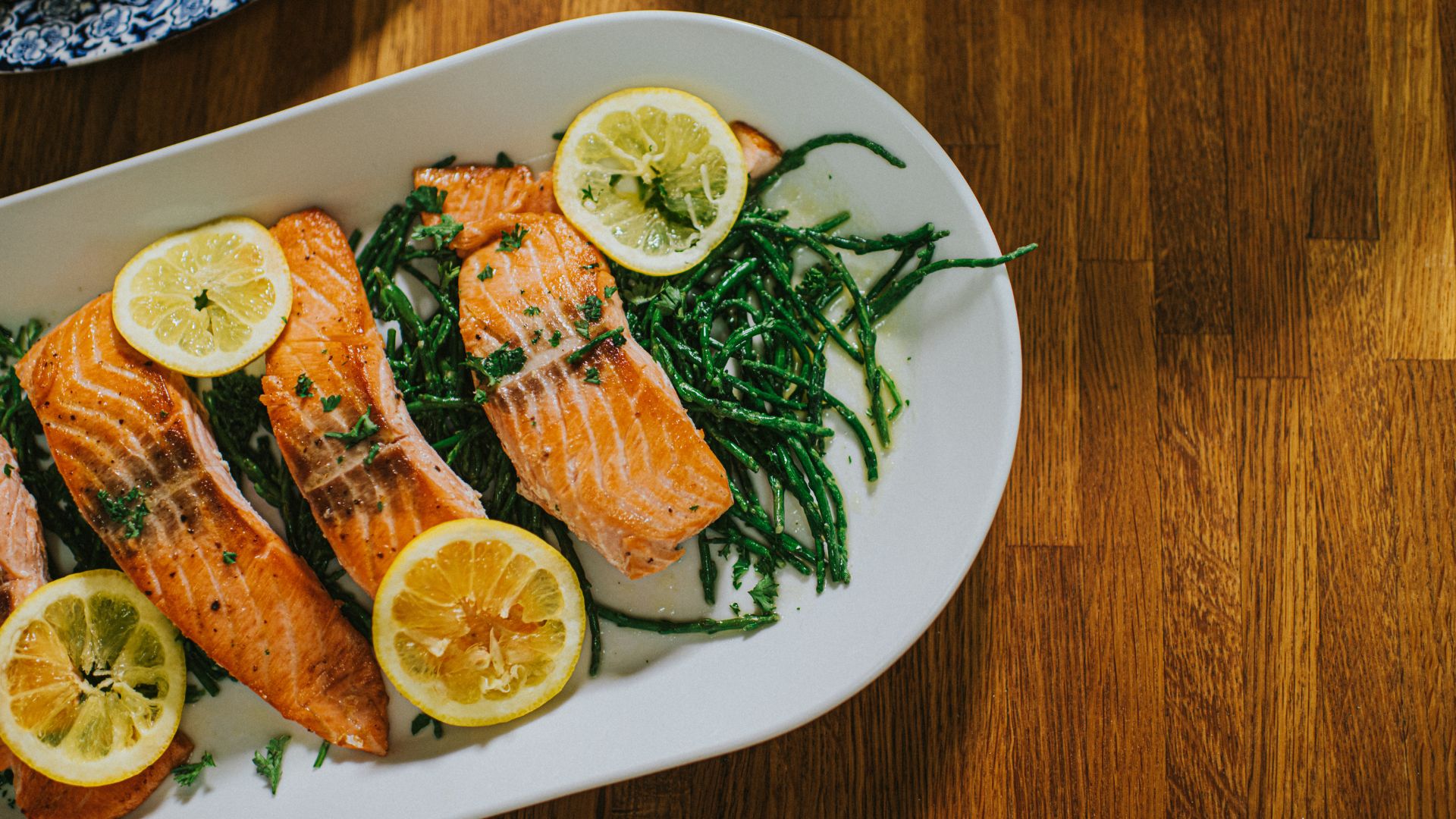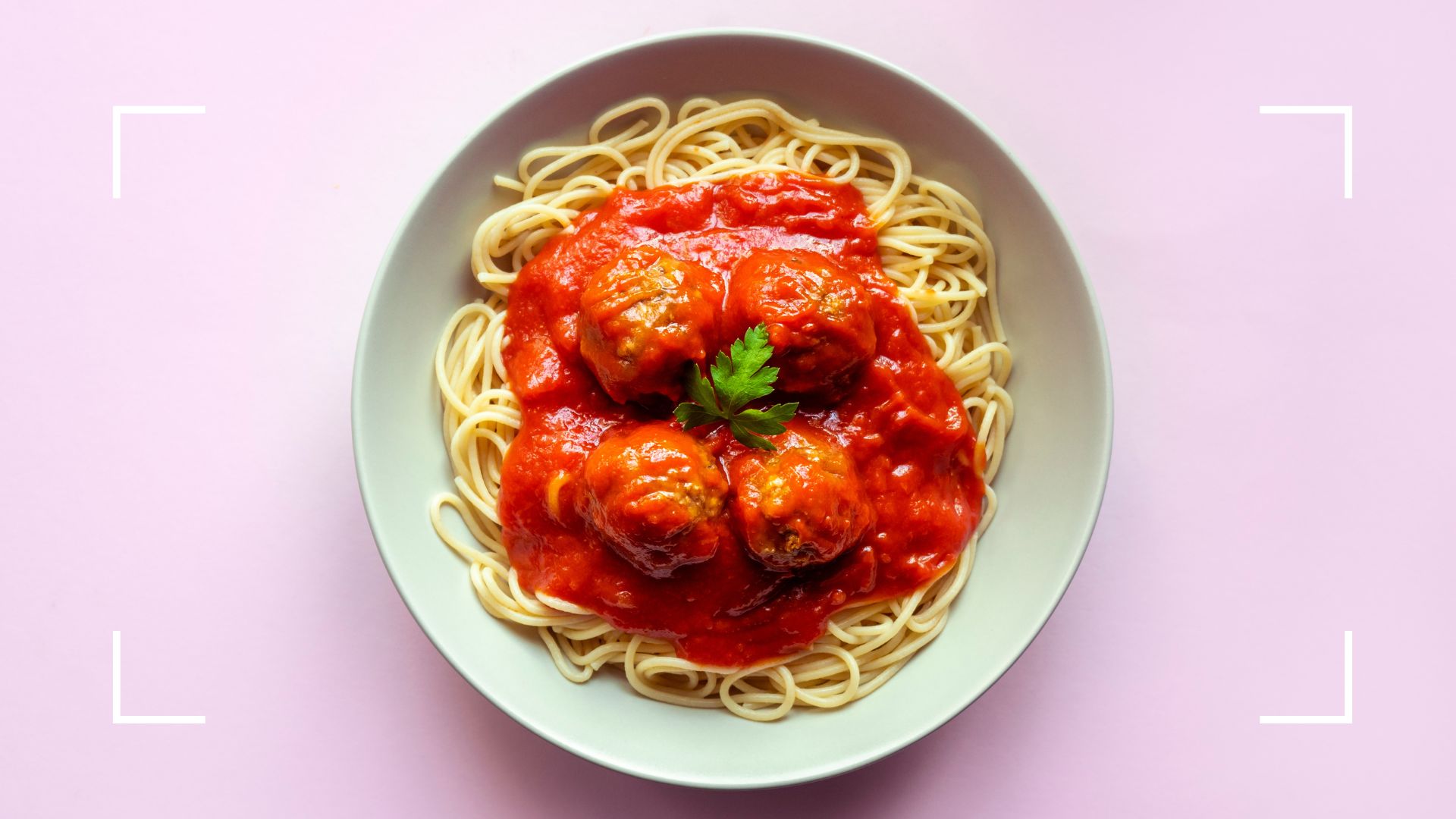5 foods for seasonal affective disorder to boost your mood
If you're struggling with the idea of upcoming winter blues, some foods for seasonal affective disorder are better than others


It may help to try some foods for seasonal affective disorder (SAD) if you struggle with your mood as the mornings and evenings get darker. This selection, recommended by the experts, isn't a cure-all but it offers many of the vitamins and minerals needed for a happier seasonal switch.
Whether you’re an annual sufferer or do your very best to make the most of the colder months, we all can relate to the dip in energy that the end of the year brings. "This condition impacts the mental wellbeing of some people during the winter months, particularly during January and February when the days begin to shorten," says Shabir Daya, lead pharmacist at Victoria Health, but it can start as early as late autumn with the shorter days.
"Those who experience seasonal affective disorder (SAD) often have low mood, varied degrees of depression, loss of energy, sleep problems, irritability, increased appetite, strong cravings for carbohydrates and sweet foods as well as headaches and muscle pain," he adds.
While we can't prolong the daylight, there's no doubt that our day-to-day eating has a huge impact on our mood. So, we can change that lifestyle factor for the better ahead of winter. Speaking to Daya and other experts, here we reveal how to combat SAD with the best foods to add to your diet.


Daya has over 40 years experience in the pharmacy industry with specialism in holistic and natural remedies for common ailments. He opened up his private pharmacist with the aim to provide natural, effective and honest medication to the public.
Foods for seasonal affective disorder
1. Foods rich in Omega-3
You may have heard that omega-3 being called 'brain food' and that's for a good reason. This super nutrient is found in several foods and we can enjoy it in several ways.
According to Caitlin Spears, certified health, nutrition and fitness coach, one of the best ways to get omega-3 into our diets during winter is by eating fatty fish. Along with salmon, this variety of fish includes herring, mussels, and anchovies.
She says, "Certain foods like fatty fish which are rich in those all-important omega-3 fatty acids have been linked to improved mood and brain function." They are also one of the foods rich in magnesium.
Sign up for the woman&home newsletter
Sign up to our free daily email for the latest royal and entertainment news, interesting opinion, expert advice on styling and beauty trends, and no-nonsense guides to the health and wellness questions you want answered.
She recommends eating dark chocolate and nuts for this exact reason too, bringing a whole new meaning to the idea of healthy chocolate.

Caitlin began her journey as a wellness expert over a decade ago and has since founded her own company Complete by Caitlin. She helps her clients reach their fitness goals with nutrition coaching and exercise-related training.

2. Seasonal vegetables
Although we might dread the dreary days that come with winter, there are a few things which we can look forward to and one of those is tasty seasonal veggies. Not only do veggies such as leeks, potatoes and broccoli make delightfully cosy soups they are also really great at boosting our moods.
"Seasonal produce is harvested at its peak ripeness, ensuring maximum nutrient content," explains Caitlin, who is also the founder of Complete by Caitlin. "Fruits and vegetables that are allowed to fully mature on the plant tend to be richer in vitamins, minerals, and antioxidants. By consuming these nutrient-dense foods, we can support our immune system and boost energy levels."
It's time to root through your very best cookbooks and crack out some warming soup and stew recipes.
3. Eggs
As well as being high in protein, meaning they'll keep you full through the morning, eggs for breakfast have actually been proven to cheer people up on gloomy mornings. Well, almost.
Eggs are jam-packed with vitamin D, the same vitamin that the sun helps to bring out in our bodies. There are several benefits of vitamin D and as Andy Daly, a nutritional therapist at Dr David Jack says, one of these is helping to potentially alleviate some of the symptoms of seasonal affective disorder.
"A lack of sunlight is often associated with SAD and vitamin D is known as the "sunshine vitamin" because our bodies can produce it when exposed to sunlight," she says.

Andy is a Nutritional Therapy practitioner and a member of the British Association for Nutrition and Lifestyle Medicine. She has also gained accreditation with the Institute for Functional Medicine and completed a professional plant-based cookery course.

4. Fermented foods
You probably already know that your gut plays a huge role in supporting mental and physical wellbeing, which is why there's so much attention on gut-healthy foods these days. So, it should come as no surprise that kimchi, sourdough and sauerkraut can help to lessen the symptoms of SAD.
"Studies have linked microbiome health to mood and wellbeing, therefore adding more beneficial bacteria to the gut may help improve mental health," says Steph Baker, a registered nutritional therapist at Purolabs, pointing to studies by SRM University and Texas Tech University looking at the relationship between our gut health and symptoms of anxiety and depression. If you've ever wondered if your gut health could be linked to your anxiety, the answer may be yes.
This is why Baker recommends eating fermented foods which are great for our guts. She says, "Increasing your intake of probiotic-rich foods, therefore, is essential to maintain and grow a thriving diverse microbiota."

Steph works as an in-house nutritional consultant at Purolabs, she has previously trained at the neuropathic is an accredited member of The British Association for Applied Nutrition and Nutritional Therapy.
5. Turkey
You may be slightly confused by this rather specific and strange food suggestion, but turkey is actually bursting with feel-good nutrients. And hey, what better season to start eating more turkey than winter?
Similar to eggs, turkey is so great because of a specific nutrient it offers. "Tryptophan is an amino acid which is required by the body for the production of serotonin, our feel-good hormone in the gut, making it a fantastic nutrient to increase and add to your daily intake," explains Baker. For the same reason, turkey makes us sleepy.
"Turkey is a potent tryptophan-rich food, therefore it may be worth considering adding a few more turkey sandwiches to your diet in the upcoming months," says Baker. And if you're on a plant-based diet then up your intake of tofu as this also contains tryptophan.

How can you treat SAD naturally?
- Exercise: As much as we may want to hibernate under blankets, it's really important to get out of the house and work out in winter. Spears explains, " Engaging in physical activities, such as walking, jogging, or yoga, releases endorphins, which are natural mood enhancers." Even just walking 30 minutes a day will do the trick.
- Light therapy: One of, if not the main cause of SAD, is a reduction in natural light and there are ways to help with this. "Light therapy, also known as phototherapy, involves using a special lightbox that mimics natural sunlight. By exposing yourself to this light for a specific duration each day, you can help regulate your body's internal clock and improve your mood," says Spears. It may be worth investing in a specialist SAD room light to make the dark mornings easier.
- Stay social: When we start feeling down, tired, and anxious the last thing we sometimes want to do is leave the house and socialise. However, when struggling with SAD it's extremely important to fight that feeling and be around those you love. Spears says, "Surrounding yourself with a supportive network of friends and family can make a significant difference in managing SAD."
- Ask for help: If your symptoms of SAD start to worsen and it all becomes a little too much then you should ask for help immediately. Seasonal affective disorder, for some people, can worsen into long-term depression. Whether you reach out to a loved one or a doctor, suffering in silence is never the answer. These symptoms are serious and shouldn't be overlooked.
Lumie Sunrise Alarm Wake up to Daylight Table Lamp in White, £49.99 | John Lewis
If you particularly struggle with the dark winter mornings these sunrise alarm clocks by Lumie are a great way to combat any SAD symptoms. They wake up by gradually producing light in your room recreating the natural sunlight summer mornings bring.

Emily joined woman&home as a staff writer after finishing her MA in Magazine Journalism from City University in 2023. After writing various health and news content, she now specialises in lifestyle, covering unique cleaning hacks, gardening how-tos, and everything to help your houseplants thrive.
-
 Considering a summer hair refresh? Demi Moore’s chic bob transformation is all the inspiration you need to book that salon appointment
Considering a summer hair refresh? Demi Moore’s chic bob transformation is all the inspiration you need to book that salon appointmentChop, chop, it's time to take a trip to the salon
By Sennen Prickett
-
 Helen Mirren just embraced Cartier's signature colour on her lips - and this easy trick will make it less intimidating to replicate
Helen Mirren just embraced Cartier's signature colour on her lips - and this easy trick will make it less intimidating to replicateWhen in doubt, do as Helen Mirren does and steer clear of matte formulas...
By Naomi Jamieson
-
 Is coffee good for gut health? Nutrition experts reveal the truth behind our favourite wake-up call
Is coffee good for gut health? Nutrition experts reveal the truth behind our favourite wake-up callIs coffee good for gut health? Or is it time to bid adieu to our beloved caffeinated friend?
By Emily Smith
-
 Do blue light glasses actually work? We asked optometrists if you should get a pair
Do blue light glasses actually work? We asked optometrists if you should get a pairDo blue light glasses actually work and can they protect our eyes from all the screens in our lives?
By Emily Smith
-
 Winter plays havoc with our gut health - here's how to get it back on track
Winter plays havoc with our gut health - here's how to get it back on trackExperts reveal why it's so important to look after your gut health in winter and how to do it best
By Emily Smith
-
 What is pink noise? Experts reveal how this sleep-inducing sound works to help you drift off
What is pink noise? Experts reveal how this sleep-inducing sound works to help you drift offYou might have heard of white noise before but it's pink noise that's been proven to help you drift off and improve your health in other ways
By Emily Smith
-
 Can menopause cause dry eyes? Doctors reveal the truth behind the symptom
Can menopause cause dry eyes? Doctors reveal the truth behind the symptomYou might not think having dry eyes has anything to do with menopause, but this is actually one of the more unexpected symptoms
By Emily Smith
-
 How to clean a Fitbit properly with these 5 easy steps
How to clean a Fitbit properly with these 5 easy stepsHere's how to clean a Fitbit properly, after a study has revealed it's most likely three times dirtier than a toilet seat
By Emily Smith
-
 Can menopause cause insomnia? If you're having sleepless nights, this is what a doctor wants you to know
Can menopause cause insomnia? If you're having sleepless nights, this is what a doctor wants you to knowCan menopause cause insomnia? Unfortunately so, but there are a few ways to lessen the effects and get a better night's sleep
By Emily Smith
-
 Can menopause cause a loss of taste and smell? Plus, 6 other signs of menopause you might not expect
Can menopause cause a loss of taste and smell? Plus, 6 other signs of menopause you might not expectCan menopause cause a loss of taste and smell? It's more than just colds and flu that can change our tastebuds
By Emily Smith
